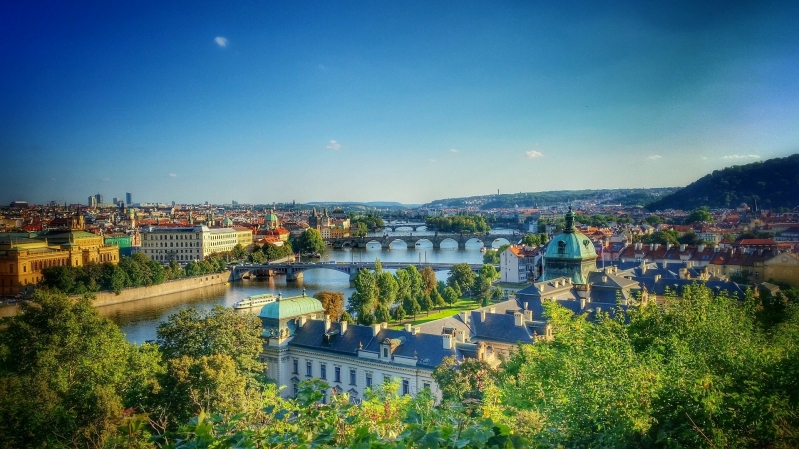
Welsh National Opera’s Music Director Tomáš Hanus is recognised as one of the Czech Republic’s most exciting and important conductors. Last year we explored his hometown of Brno, but this time we’re taking a closer look at Czechia’s capital - Prague.
Antonín Leopold Dvořák was born in Nelahozeves, Bohemia in 1841. Learning to play the violin and the viola, his gift for music soon became apparent, and he moved to Prague at 16. Dvořák’s first attempts at composition were unsuccessful but his Slavonic Dances (1878) became an instant sensation. He developed a close relationship with musical societies in London following a performance of his Stabat Mater there in 1884.
Aged 51, Dvořák moved to New York to become director of the National Conservatory of Music of America. During this period, he wrote his New World Symphony, before returning to Prague to teach composition at the Conservatoire. His greatest opera Rusalka (1901) combines distinctively national flavours in its folk tunes and dances. He died on 1 May 1904 at his flat on Zitna Street in Prague. Black banners were hanging from the facade of the National Theatre before the evening performance.
The National Theatre is one of Prague’s most impressive buildings and provides a stage for traditional opera, drama and ballet. Part of the National Theatre since 1920, The Estates Theatre is Prague’s oldest theatre, famed as the place where Mozart conducted the premiere of Don Giovanni on 29 October 1787. Amongst other significant arts venues are Prague State Opera and Dvořák Hall, home to the world-renowned Czech Philharmonic Orchestra.
Smetana Hall is Prague’s biggest concert hall, with seating for 1200 beneath an art-nouveau glass dome, and is the home venue of Prague Symphony Orchestra. Prague Spring (Pražské jaro) international music festival always opens on 12 May, the anniversary of Smetana’s death, with a procession from Vyšehrad to the Municipal House followed by a gala performance of his symphonic cycle Má vlast (My Country) in Smetana Hall. The most famous of the six nationalistic symphonic poems is the hauntingly beautiful Vltava (The Moldau) which follows the river from its source in the mountains of the Bohemian Forest, through the Czech countryside, to the city of Prague.
Bedřich Smetana was born 2 March 1824 in Litomyšl, Bohemia, and gave his first public performance at the age of 6. His first nationalistic music was written during the 1848 Prague uprising in which he briefly participated. He also opened a piano school in Prague in 1848 and married the pianist Kateřina Kolářová in 1849. After failing to build his career in Prague, they left for Sweden, where he was embraced as a pianist and conductor.
Smetana established himself in his homeland with The Bartered Bride (1866) and became director of the Prague Provisional Theatre. In 1874 he went deaf in one ear but still managed to complete Má vlast (1872-9) and his autobiographical string quartet Z mého života – From my life (1876) which depicted his struggle with deafness and tinnitus. He was also able to write three more operas – The Kiss (1876), The Secret (1878) and The Devil’s Wall (1882). Smetana is recognised as the vital force in establishing Bohemian music and developing a style of national opera. His achievements helped Dvořák become the first Bohemian composer to achieve worldwide recognition.



